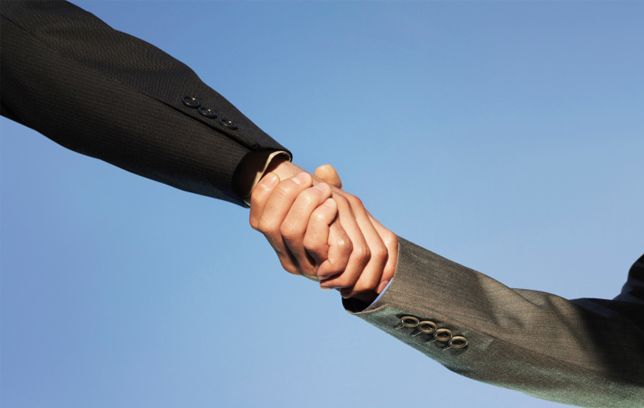


This symbol of trust and cooperation is why it’s used as a photo-opportunity at global summits such as the G20. “That's a very important signal in business contexts, where people are often meeting with strangers in highly consequential settings.” Her research has shown that people are more willing to work with those who proffer their hands to others at the start of a negotiation, as it signals a motive of trust, cooperation and follow-through. “Even though handshakes aren't literally used to ascertain whether or not the other person is holding weapons anymore, they've maintained their signal of showing good intentions,” says Juliana Schroeder, a professor at the University of California, Berkeley who studies psychology and organisational behaviour. Today, shaking hands has become a global standard for greetings and business. Other Classical art shows such a gesture being used in marriages, between rulers, and other situations that depict working together or cementing relationships. Scholars have studied the gesture for decades, and it has been spotted as a motif in Greek and Roman art that conveys intimate emotion and connectedness. Experts say the exact origin story is a bit murky, but people are often shown displaying an empty right hand to demonstrate to the other person they’re not carrying a weapon, and so they can be trusted. Those depictions include Babylonian stone reliefs and the epics of Homer.

Could the handshake actually die out? And if it does, what could replace it?įrom ancient Egypt to Mesopotamia to Classical Greece, depictions of shaking or displaying open hands as a sign of trust appear in art and literature from thousands of years ago. He calls it an “outmoded custom and it has no place in a culture that believes in germ theory,” the idea that certain diseases are caused by microorganisms invading the body.īut how can we stop doing something that’s so ingrained? Social distancing seemed impossibly hard to adapt to at first. “When you extend your hand, you’re extending a bioweapon,” says Gregory Poland, infectious disease expert at the Mayo Clinic, one of the largest medical research institutions in the US. Its origins go back millennia.īut in the midst of a global public health crisis in which hundreds of millions are avoiding physical contact to stop the spread of Covid-19, examining the need for something as ingrained as the handshake suddenly doesn’t seem quite so outlandish. After all, shaking hands has been the de facto greeting in international business, politics and society for the better part of a century. If Fauci’s advice were to be taken en masse, it would mark a profound shift in human behaviour. “ I don’t think we should ever shake hands ever again, to be honest with you.” Fauci, a key figure in the US response to the virus, had this to say last week to the Wall Street Journal: People are staying at home to avoid physical contact, and are following advice from public figures such as Anthony Fauci, head of the country’s National Institute of Allergy and Infectious Diseases. The United States has become the hardest-hit country in the global Covid-19 pandemic, with more than 550,000 confirmed cases and 22,000 deaths.


 0 kommentar(er)
0 kommentar(er)
